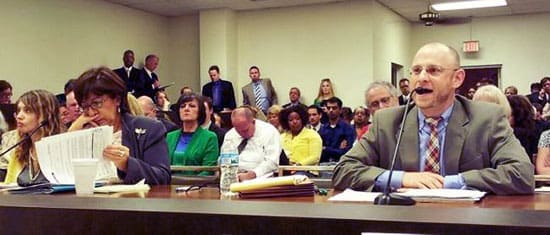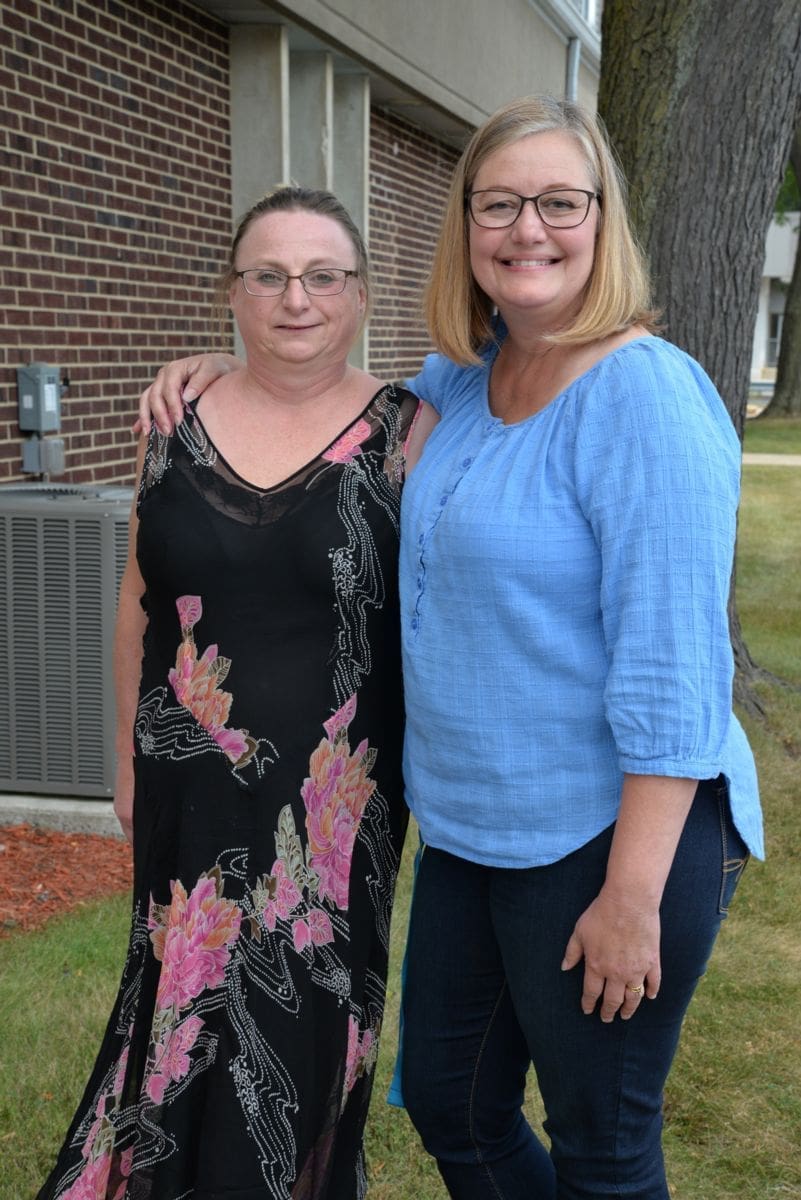
By John Peller, Vice President of Policy
AFC’s John Peller was invited by State Rep. Sara Feigenholtz (D-Chicago) to testify in support of SB 26, which would leverage federal Medicaid funding to cover low-income people, including thousands with HIV. Here’s the testimony John delivered.
Good morning, Madam Chair and members of the committee. I’m John Peller with the AIDS Foundation of Chicago.
I’m here to testify in strong support of SB 26 and to thank Rep. Feigenholtz, Senator Steans, Director Hamos and the HFS team, and Governor Quinn for their leadership on this bill. I also want to thank my colleagues Ramon Gardenhire and Nadeen Israel for organizing the advocates for SB 26.
It’s not often that you see the AIDS Foundation of Chicago and the Illinois Chamber of Commerce at the same witness table supporting the same bill. Don’t get me wrong – we get along just fine. It’s just that our organizations don’t have much in common. But we’re both supporting SB 26 because it’s the right thing to do for the state’s businesses, economy, health care system, communities and most importantly, its residents: your constituents.
SB 26 will allow 342,000 people to gain comprehensive coverage under Medicaid.
Let me give you an example of someone who would be helped by this bill. Harry (not his real name) was uninsured and receiving HIV care at Oak Forest. But he was diagnosed with diabetes and suffered from extreme fatigue due to a heart condition. The doctor struggled to get the patient on the priority list at Stroger Hospital. She was frustrated by having to pick which health condition she could work on at a time; this was further complicated because the meds recommended for his cardiac problems were contraindicated for people on HIV meds. But once he got a Medicaid card, he was able to receive excellent cardiac care at Northwestern Memorial Hospital and has had two coronary procedures there.
There are 342,000 Harrys out there who will gain new health coverage under SB 26 and receive the medication and treatment they need. They’re already using our emergency rooms, hospitals and free clinics. It’s just that they’re using them the wrong way because they have no choice. SB 26 will give them the opportunity to manage their chronic conditions, access preventive care, and over time, reduce spending for all of us.
I want to address a few myths about SB 26.
First, you’ve probably heard concerns that the state will be left holding the bag if the federal government ever drops its share of match below 90 percent. This should not be a concern for us. First, there’s an iron-clad provision on page 412 line 1 that automatically stops coverage of the new Medicaid population if the match drops below 90 percent. Yes, the bill gives the General Assembly time to reverse that decision, and yes, it will be hard for your future colleagues to resist the political pressures to continue coverage. But the fact remains: There is an automatic end to the program that’s written into this bill that provides financial protections for the state.
On a related note, you’ve probably heard the fear that the federal government might cut its match and institute a maintenance of effort requirement. This would force the state to continue to cover the new Medicaid population with less federal funding. This fear ignores history – when the feds have put a maintenance-of-effort requirement in place, it’s been when they increased federal matching rates and didn’t want states to supplant federal funding. And remember who makes up Congress: representatives and senators from our states, many of whom are your former colleagues. It’s hard to see a situation in which they would agree to handcuff the state and cut funding at the same time – and be able to set foot in Illinois again.
Another argument you’ll hear against this bill is that there’s no rush to pass it: Illinois doesn’t need to pass the bill now, we can wait. This is just not true. Every day we delay after January 1 is a day that we leave on the table millions of federal dollars we could be using for better, more comprehensive coverage for people who are already using our community’s hospitals, emergency rooms, and clinics, with no hope of getting ahead of the illnesses they are facing because they can’t afford medications or preventive care.
You’ll also hear that the Medicaid system is broken, and that we shouldn’t put more people into Medicaid. I agree that Medicaid is far from perfect – the rates are too low, and it can be difficult to find specialists. But Medicaid is undergoing a sweeping transformation as it implements care coordination for half of the Medicaid population, in line with the mandate that you established several years ago. HFS is giving responsibility for cost and quality to new managed care and community-based providers systems, and is creating incentives that will establish an entirely new Medicaid system. We’re not putting people into the old Medicaid system that you know; they’re going into a new system that will address many of these long-standing problems.
You’ll also hear that the costs for the new Medicaid population will be higher than HFS anticipates. It’s well documented that newly insured people use quite a lot of medical care. This is due to pent up demand as they see providers for conditions that had been untreated for too long. Fortunately, the federal government will pay 100 percent of the costs during this initial three-year period when pent-up demand will be greatest. More importantly, we will be investing in smart preventive care. And as the pent-up health needs are addressed and health care costs for those folks come down, the remaining costs are still paid for with 90 percent federal funds.
It’s not often in your careers as legislators that you will take as momentous step as you will today. I urge you to vote yes for SB 26 to give 342,000 of your constituents the chance to get new health coverage – and for the rest of your insured constituents the opportunity to reap the benefits from lower spending on uncompensated care and charity care.
Photo credit: Kelly Cassidy

